About us
IDN Global News
Congressional Report Warns of Skyrocketing Costs of U.S. Nuclear Arsenal
By J C Suresh
TORONTO | WASHINGTON, D.C. (IDN) – A new study throws limelight on the skyrocketing costs of the current plan to sustain and upgrade U.S. nuclear forces and outlines several pragmatic options to maintain a credible, formidable deterrent at less cost.
The Congressional Budget Office (CBO) study published on October 31 estimates that sustaining and upgrading U.S. nuclear forces will cost taxpayers $1.24 trillion in inflation-adjusted dollars between fiscal years 2017 and 2046. When the effects of inflation are included, the CBO expects the 30-year cost to exceed $1.5 trillion. These figures are significantly higher than the previously reported estimates of roughly $1 trillion. [P 24] BAHASA | JAPANESE TEXT VERSON PDF | TURKISH
Congressional Report Warns of Skyrocketing Costs of U.S. Nuclear ArsenalRead More »
Congressional Report Warns of Skyrocketing Costs of U.S. Nuclear Arsenal
By J C Suresh
TORONTO | WASHINGTON, D.C. (IDN) – A new study throws limelight on the skyrocketing costs of the current plan to sustain and upgrade U.S. nuclear forces and outlines several pragmatic options to maintain a credible, formidable deterrent at less cost.
The Congressional Budget Office (CBO) study published on October 31 estimates that sustaining and upgrading U.S. nuclear forces will cost taxpayers $1.24 trillion in inflation-adjusted dollars between fiscal years 2017 and 2046. When the effects of inflation are included, the CBO expects the 30-year cost to exceed $1.5 trillion. These figures are significantly higher than the previously reported estimates of roughly $1 trillion. [P 24] BAHASA | JAPANESE TEXT VERSON PDF | TURKISH
Congressional Report Warns of Skyrocketing Costs of U.S. Nuclear ArsenalRead More »
NAM Calls for Convening a Disarmament Conference at the UN
By Dr. Ankit Srivastava*
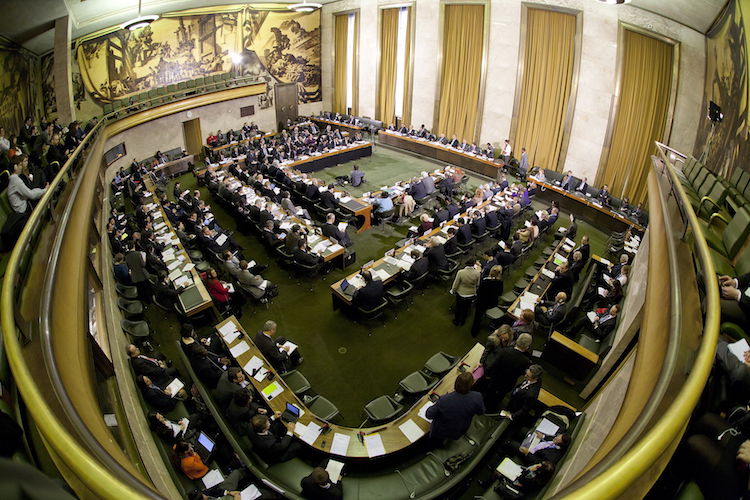
NEW DELHI (IDN-INPS) – Since the inception of the Non-Aligned Movement, the NAM Member States have adhered to the principle of nuclear disarmament and non-proliferation. The stance on disarmament has been a recurring theme at all the NAM summits. In multilateral forums like the United Nations too, NAM has been actively participating in the non-proliferation initiatives.
On September 26, 2017, in the High Level Meeting of the UN General Assembly on the [International Day for the] Total Elimination of Nuclear Weapons, NAM Member States supported the convening of an international conference on nuclear disarmament at the United Nations.
NAM Calls for Convening a Disarmament Conference at the UNRead More »
Japan Determined to Play a Bridging Role for a World Free of Nuclear Weapons
Viewpoint by Tarō Kōno, Japan’s Foreign Minister
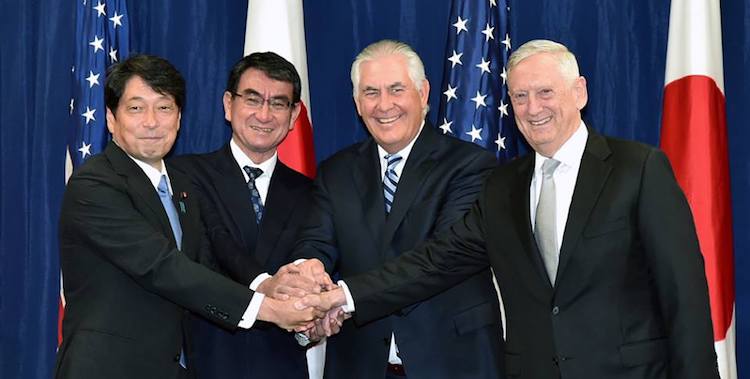
The UN General Assembly’s First Committee adopted on October 28 Japan’s draft resolution ‘United action with renewed determination towards the total elimination of nuclear weapons’, which is scheduled to be put on a vote in a plenary meeting of the UN General Assembly in early December. 144 countries including nuclear weapon states supported it. Following are extensive excerpts from the transcript of the video message by Japan’s Foreign Minister Tarō Kōno, posted on October 20, 2017 on the Ministry of Foreign Affairs’ channel (mofachannel) on YouTube.
TOKYO | UNITED NATIONS (IDN-INPS) – Unfortunately the difference of approaches towards a world free of nuclear weapon has become clear between nuclear and non-nuclear weapon States as well as among non-nuclear weapon States. Besides as the international security environment deteriorates, the discussion towards such ultimate goal has become further complicated.
Japan Determined to Play a Bridging Role for a World Free of Nuclear WeaponsRead More »
Disarmament, Non-proliferation Vital for Conflict Prevention
By Izumi Nakamitsu
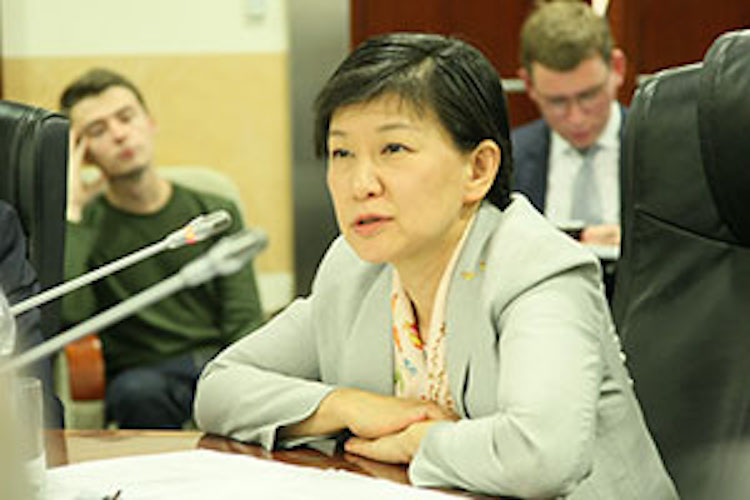
The author is High Representative for Disarmament Affairs United Nations (UNODA). The following are extensive excerpts from her address to Non-proliferation Studies students on the joint programme between Middlebury Institute of International Studies at Monterey (MIIS), Moscow State Institute of International Relations (MGIMO), and PIR Center, on 19 October 2017 in Moscow. – The Editor.
MOSCOW (IDN) – Historically speaking, the concepts of disarmament and non-proliferation date back centuries. The international efforts to strengthen the law of war are one of the important origins of disarmament work. Our work today is largely rooted in the terrible human consequences that resulted from two world wars, including the first and thankfully only uses of nuclear weapons in conflict at Hiroshima and Nagasaki. We work to ensure the people of this world never have to endure such devastation again.
Disarmament, Non-proliferation Vital for Conflict PreventionRead More »
India Ready to Work with Signatories of the Nuclear Ban Treaty in Multilateral Forums
By Amandeep Singh Gill
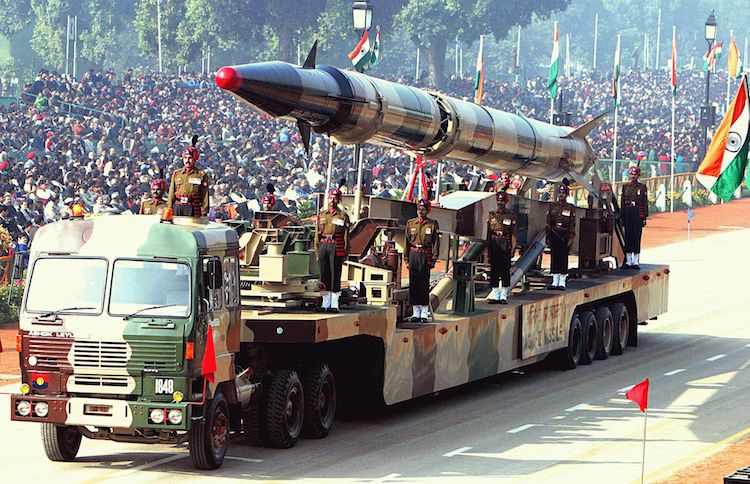
Ambassador Amandeep Singh Gill is Permanent Representative of India to the Conference on Disarmament in Geneva. Following are extensive excerpts from his remarks at the Thematic Debate on Nuclear Weapons in the First Committee, 72nd Session of the UN General Assembly on 12 October 2017. – The Editor.
UNITED NATIONS (IDN) –India remains committed to universal, non-discriminatory and verifiable nuclear disarmament and to multilateralism in pursuit of that goal. Our position has been firm and consistent over the years.
India Ready to Work with Signatories of the Nuclear Ban Treaty in Multilateral ForumsRead More »
Will U.S. Congress Legally Restrain a Nuclear World War III?
By Shanta Roy
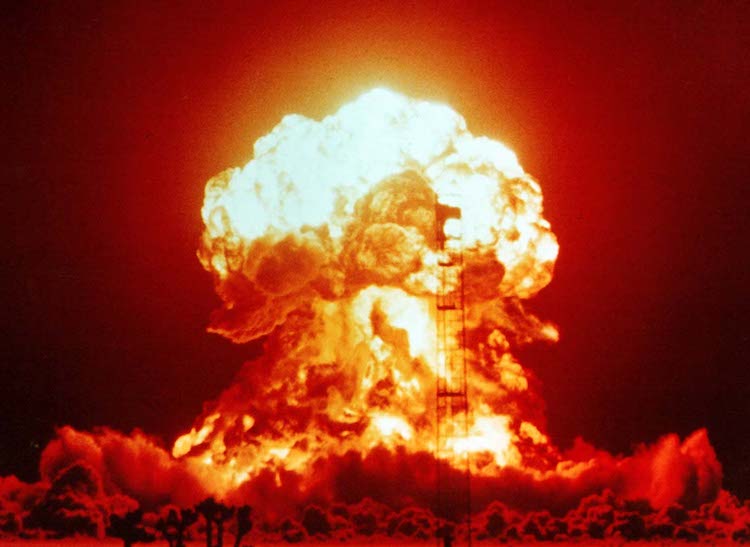
UNITED NATIONS (IDN) – U.S. President Donald Trump’s highly erratic behavior on nuclear weapons – and his public threats to “totally destroy” North Korea – have triggered a strong political backlash from anti-nuclear and anti-war activists.
“A central problem is that Donald Trump seems ignorant about what nuclear weapons really are, and the humanitarian catastrophe that would be unleashed if he fired even one at North Korea – or anywhere,” said Dr. Rebecca Johnson of the Acronym Institute for Disarmament Diplomacy, a founding co-Chair of the International Coalition to Abolish Nuclear Weapons (ICAN), the 2017 Nobel Peace Laureate. [P 23] ITALIAN | JAPANESE TEXT VERSON PDF | MALAY | NORWEGIAN | THAI
Will U.S. Congress Legally Restrain a Nuclear World War III?Read More »
Will U.S. Congress Legally Restrain a Nuclear World War III?
By Shanta Roy

UNITED NATIONS (IDN) – U.S. President Donald Trump’s highly erratic behavior on nuclear weapons – and his public threats to “totally destroy” North Korea – have triggered a strong political backlash from anti-nuclear and anti-war activists.
“A central problem is that Donald Trump seems ignorant about what nuclear weapons really are, and the humanitarian catastrophe that would be unleashed if he fired even one at North Korea – or anywhere,” said Dr. Rebecca Johnson of the Acronym Institute for Disarmament Diplomacy, a founding co-Chair of the International Coalition to Abolish Nuclear Weapons (ICAN), the 2017 Nobel Peace Laureate. [P 23] ITALIAN | JAPANESE TEXT VERSON PDF | MALAY | NORWEGIAN | THAI
Will U.S. Congress Legally Restrain a Nuclear World War III?Read More »
Nuclear Nightmare Persists As UN Treaty Awaits Ratification
By Ramesh Jaura
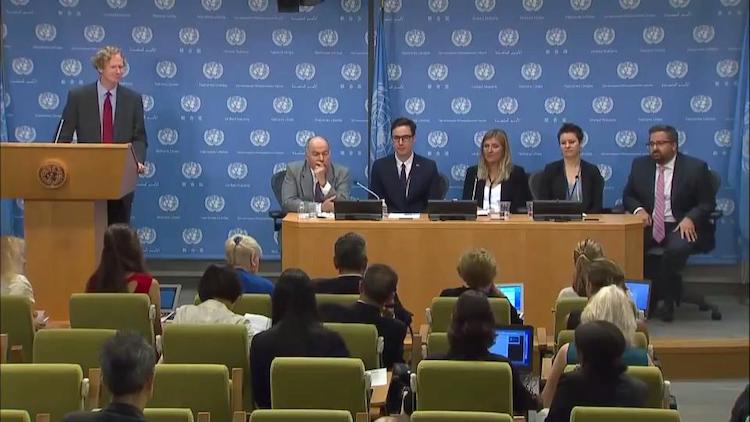
UNITED NATIONS (IDN) – “They will continue to be guided by their solemn conviction that a nuclear war cannot be won and must never be fought,” says the historic Joint Statement U.S. President Ronald Reagan and his counterpart from the then Soviet Union, Mikhail Gorbachev, signed on December 10, 1987 in Washington.
Thirty years on, Gorbachev – who was awarded the Nobel Peace Prize 1990 “for his leading role in the peace process which today characterizes important parts of the international community” – is “deeply concerned about the fact that military doctrines once again allow for the use of nuclear weapons”. [P 22] | JAPANESE Part 1, Part 2 |
Nuclear Nightmare Persists As UN Treaty Awaits RatificationRead More »
Nuclear Nightmare Persists As UN Treaty Awaits Ratification
By Ramesh Jaura

UNITED NATIONS (IDN) – “They will continue to be guided by their solemn conviction that a nuclear war cannot be won and must never be fought,” says the historic Joint Statement U.S. President Ronald Reagan and his counterpart from the then Soviet Union, Mikhail Gorbachev, signed on December 10, 1987 in Washington.
Thirty years on, Gorbachev – who was awarded the Nobel Peace Prize 1990 “for his leading role in the peace process which today characterizes important parts of the international community” – is “deeply concerned about the fact that military doctrines once again allow for the use of nuclear weapons”. [P 22] | JAPANESE Part 1, Part 2 |
Nuclear Nightmare Persists As UN Treaty Awaits RatificationRead More »
Search
Newsletter
Report & Newsletter
Toward a World Without Nuclear Weapons 2022






